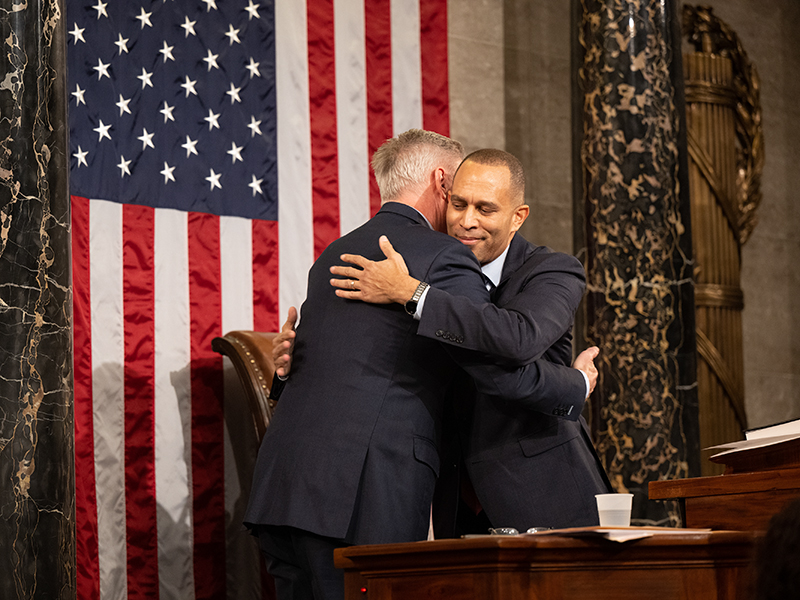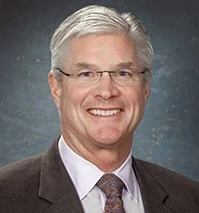Table Of Content
- Temporary Speaker McHenry says the hope is to bring a vote on the speaker to the House floor Thursday
- McCarthy says he will support Scalise, but won't try to sway holdouts
- Word History
- No House votes expected today as Scalise's team looks for more votes
- 'If we go, America loses,' locals tell federal lawmakers during Lafourche roundtable

Republican Rep. Anna Paulina Luna of Florida a member of the House Oversight Committee, said she feels “comfortable” enough to support Speaker nominee Steve Scalise after their conversation Wednesday afternoon. GOP Rep. Chip Roy, a possible holdout as House Majority Leader Steve Scalise tries to secure the speakership, told reporters that he is mainly concerned about the process for nominating a speaker. Mace said she let Scalise know of her opposition Wednesday afternoon but had not yet heard back from him. Ballotpedia features 486,932 encyclopedic articles written and curated by our professional staff of editors, writers, and researchers. Bayou business leaders vented frustration to members of Congress who visited Port Fourchon that their communities are dying because of Washington, D.C. Get answers to frequently asked questions about committees from the Clerk of the House.
Temporary Speaker McHenry says the hope is to bring a vote on the speaker to the House floor Thursday
However, the Constitution states, "All Bills for raising Revenue shall originate in the House of Representatives." Because of the Origination Clause, the Senate cannot initiate bills imposing taxes. This provision barring the Senate from introducing revenue bills is based on the practice of the British Parliament, in which only the House of Commons may originate such measures. Furthermore, congressional tradition holds that the House of Representatives originates appropriation bills. The House also has the power to formally censure or reprimand its members; censure or reprimand of a member requires only a simple majority, and does not remove that member from office. Seats vacated during a term are filled through special elections, unless the vacancy occurs closer to the next general election date than a pre-established deadline.
Democratic leader: Maine would be 'compelled' to act if Nebraska changes to winner-take-all - Bangor Daily News
Democratic leader: Maine would be 'compelled' to act if Nebraska changes to winner-take-all.
Posted: Fri, 26 Apr 2024 15:44:29 GMT [source]
McCarthy says he will support Scalise, but won't try to sway holdouts
Republicans are worried that House Majority Leader Steve Scalise is facing grim prospects of becoming speaker, only prolonging the GOP's leadership crisis that has left the House paralyzed and unable to move on any legislation. House Majority Leader Steve Scalise brought lawmakers to tour oil rigs and meet with locals in his yearly roundtable at Port Fourchon. Forty-two federal and parish officials, oil executives, business leaders and port commissioners met to discuss political strategy and policy Monday at the Greater Lafourche Port Commission. Having the lawmakers' ears, locals told them their communities are dying because of decisions made by far off bureaucrats. But let me tell you what's going to happen if the Republicans take over the House. And very frankly, what the Republicans have done, what Donald Trump has done is deeply divide our country, [and] polarize our politics.
Word History

In 1919, for instance, Republicans bypassed James R. Mann, R-IL, who had been minority leader for eight years, and elected Frederick Gillett, R-MA, to be Speaker. State legislative leadership refers to a range of different positions, including senate presidents and presidents pro tempore, house and assembly speakers, and minority and majority leaders. These positions are typically elected by the full membership of the chamber instead of by the public at large. Although the power and titles of leadership positions vary between states, these leaders all play a role in the legislative process. House leadership includes the speaker, majority and minority leaders, assistant leaders, whips and a party caucus or conference. The speaker acts as leader of the House and combines several institutional and administrative roles.
No House votes expected today as Scalise's team looks for more votes
The largest committee of the House is the Committee of the Whole, which, as its name suggests, consists of all members of the House. The Committee meets in the House chamber; it may consider and amend bills, but may not grant them final passage. Generally, the debate procedures of the Committee of the Whole are more flexible than those of the House itself.
A seventh delegate, representing the Cherokee Nation, has been formally proposed but has not yet been seated.[30] An eighth delegate, representing the Choctaw Nation is guaranteed by treaty but has not yet been proposed. Additionally, some territories may choose to also elect shadow representatives, though these are not official members of the House and are separate individuals from their official delegates. The minority party offers strong opposition to majority party initiatives but does not counter with policy alternatives of their own. In the instance when the Presidency and both Houses of Congress are controlled by one party, the Speaker normally assumes a lower profile and defers to the President.
Although the scope of the vacant congressional office is limited, constituents of the district are invited to contact this interim office for information and assistance as indicated below. The majority leader is often assisted by whips, who help ensure that majority party members are present for votes during floor sessions and support the party's legislative agenda. Before members are assigned to committees, each committee’s size and the proportion of Republicans to Democrats must be decided by the party leaders. The total number of committee slots allotted to each party is approximately the same as the ratio between majority party and minority party members in the full chamber. In the instance when the presidency and both Houses of Congress are controlled by one party, the speaker normally takes a low profile and defers to the president. For that situation the House minority leader can play the role of a de facto "leader of the opposition", often more so than the Senate minority leader, due to the more partisan nature of the House and the greater role of leadership.
Party functions
∎ In the Boston area, encampments have been erected at multiple schools including Tufts University, the Massachusetts Institute of Technology and Emerson College. ∎ Hamas also put out a statement about the demonstrations, as Izzat Al-Risheq, a member of the militant group's Political Bureau, said the Biden administration is "violating the individual rights and the right to expression through arresting university students and faculty members'' who are protesting. The university closed the main campus due to the "significant activity on campus," USC's Department of Public Safety said in an alert to students. Everyone on the campus could still leave but students were required to enter through pedestrian gates using their school IDs. Arrests were actively being made on the USC campus Wednesday night, a Los Angeles police spokesperson told USA TODAY. The spokesperson said he could not provide an estimate on how many people were detained.
Scalise: House Republicans are Standing with Israel Against Evil - Majority Leader
Scalise: House Republicans are Standing with Israel Against Evil.
Posted: Wed, 17 Apr 2024 07:00:00 GMT [source]
NEW YORK − Columbia University announced Wednesday that students had agreed to scale down their encampment as protesters across the nation pressed their demands for an end to the civilian casualties in Gaza that have tested the American public's historically ironclad support for Israel. Age has become a focal point on Capitol Hill in addition to the presidential campaign trail. Democrat Dianne Feinstein of California, who died in September at age 90, had been the Senate’s oldest member.
In 1919, following the example set by Republican Leader Frank Mondell of Wyoming in the 66th Congress (1919–1921), Majority Leaders more or less stopped serving on committees. The late 19th and early 20th centuries also saw a dramatic increase in the power of the speaker of the House. The rise of the speaker's influence began in the 1890s, during the tenure of Republican Thomas Brackett Reed. While the minority leader was the head of the minority party, the majority leader remained subordinate to the speaker. The speakership reached its zenith during the term of Republican Joseph Gurney Cannon, from 1903 to 1911. The speaker's powers included chairmanship of the influential Rules Committee and the ability to appoint members of other House committees.
Among other duties, representatives introduce bills and resolutions, offer amendments and serve on committees. The number of representatives with full voting rights is 435, a number set by Public Law 62-5 on August 8, 1911, and in effect since 1913. The number of representatives per state is proportionate to population. The assistant majority leader and assistant minority leader of the House, commonly called whips, are the second-ranking members of each party's leadership.
After the conference chair, there are differences between each party's subsequent leadership ranks. After the Democratic caucus chair is the campaign committee chair (Democratic Congressional Campaign Committee), then the co-chairs of the Steering Committee. For the Republicans it is the chair of the House Republican Policy Committee, followed by the campaign committee chairman (styled as the National Republican Congressional Committee). After the whips, the next ranking official in the House party's leadership is the party conference chair (styled as the Republican conference chair and Democratic caucus chair). Speakers serve as chairs of their party's steering committee, which is responsible for assigning party members to other House committees. The speaker chooses the chairs of standing committees, appoints most of the members of the Rules Committee, appoints all members of conference committees, and determines which committees consider bills.
All southern senators except Andrew Johnson resigned their seats at the beginning of the war, and therefore the Senate did not hold the balance of power between North and South during the war. During the first half of the 19th century, the House was frequently in conflict with the Senate over regionally divisive issues, including slavery. The North was much more populous than the South, and therefore dominated the House of Representatives. However, the North held no such advantage in the Senate, where the equal representation of states prevailed.

No comments:
Post a Comment